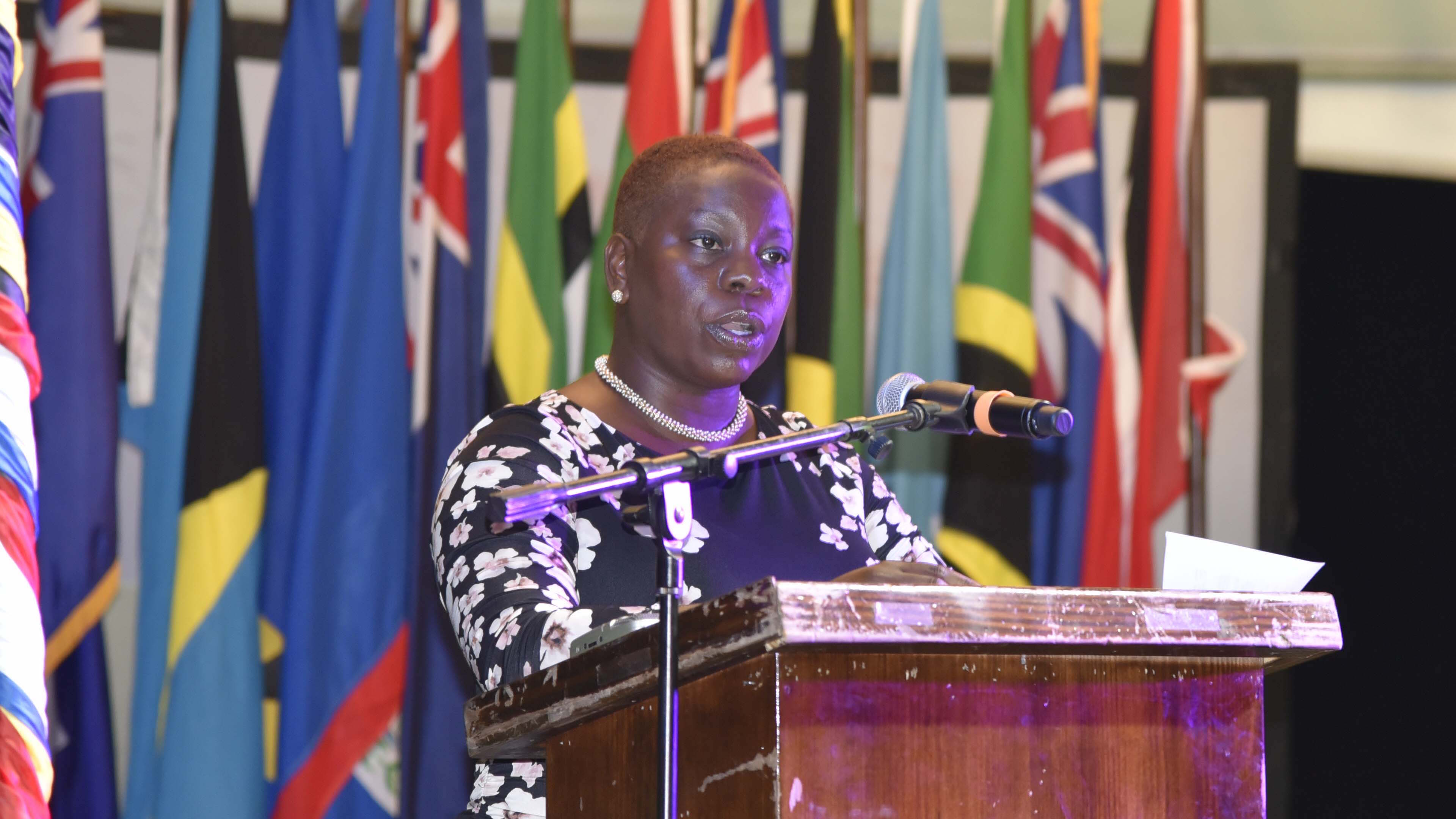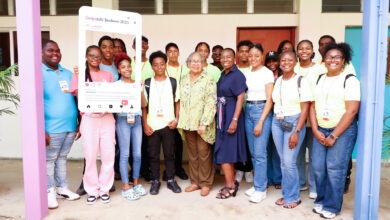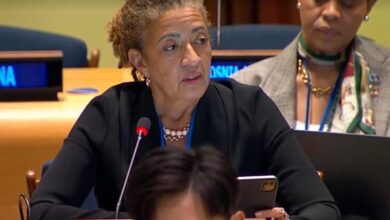In October 2011, a report commissioned by Commonwealth Heads of Government made the following compelling statement:
At least 60 per cent of the Commonwealth’s population is under 30 years of age.
That is significantly lower than the global average of 52%.
Therefore the future of the Commonwealth – and of the world it
shares – is inexorably tied to the future of these young people.
The Report was entitled, “A Commonwealth of the People: Time for Urgent Reform”, and it was compiled by an Eminent Persons Group appointed by Commonwealth Heads of Government at their meeting in Trinidad in 2009.
The rapporteur of the Group was a distinguished Antigua and Barbuda diplomat, Sir Ronald Sanders.
That report became the basis for the current strategic plan and work programme of the Commonwealth Secretariat, but sadly two of its main recommendations about Youth remain unimplemented.
Those two recommendations were:
One, “the creation of a Commonwealth Youth Corps “to advance the values of the Commonwealth through the instrument of volunteerism, development, exchange and service”; and
Two, “the creation of a Commonwealth Youth Development Fund to which youth across the Commonwealth could apply for funding to deliver innovative, entrepreneurial solutions to youth employment challenges in their communities”.
Even more regrettable is that the three Commonwealth Youth Centres, which existed as functional commitments to youth in the Commonwealth, have been closed down.
There may have been good reason why the two strong recommendations on Youth have not yet been implemented, and there may also be sound reasons why the three emblematic Youth Centres were closed-down.
Perhaps, it is that more well-resourced and robust machinery is being put in place to demonstrate to the youth of the Commonwealth, that their concerns and challenges are being treated with the seriousness that they deserve.
I certainly hope so, as I am sure everyone gathered here does as well.
Ladies and Gentlemen, what I know is that in the Commonwealth Caribbean countries, there are more young people than older ones.
In the entire Commonwealth, three in every five citizens are under the age of thirty.
Commonwealth Caribbean countries are not the habitats of older people with some younger ones.
It is the other way around: our countries are habitats for younger people with some older ones.
That is why we cannot say that “The Youth are our future” or that “The Youth are our leaders of tomorrow”.
The fact is that the Youth are our present; they must also play a meaningful part in our leadership today.
Some are in leadership roles now;
In Antigua and Barbuda we have elected one of the youngest Prime Ministers in the Region in the person of the Honourable Gaston A. Browne. A Prime Minister who believes in creating opportunities for our young people to realize their potential and capitalize on the opportunities available for their advancement and the economic development of our nation.
Many others are looking for the opportunity to take hold of their lives and the lives of their countries to make them both sustainably better.
That is why I personally regret that the Commonwealth has not yet actively pursued the recommendation of the Eminent Persons Group to create the Youth Development Fund that I referred to earlier.
It is not as if there are countries in the Commonwealth that cannot afford to make the investment.
At the end of the year 2012, there were 1,226 individuals in the world whose combined wealth amounted to US$4.6 trillion, giving them an average wealth of US$3.5 billion.
Of the Commonwealth countries, Britain ranked fourth as the country in which the most billionaires live, and India ranked fifth.
Canada, Australia, New Zealand, Singapore, Malaysia and South Africa also ranked highly among the places that are homes to the world’s billionaires.
Why then can the Commonwealth not make a concerted effort to convince the custodians of this great wealth in some of their countries to make an investment in the well-being of others, particularly the 31 small states that comprise the vast majority of the 53-member countries?
The investment would not be a charity; not a give-away.
It would be an investment in the energy, creativity, idealism and motivation of youth.
There could be no better opportunity for such an investment.
And there could be no better time.
For, our youth today are technology-savvy; they are more aware than any other generation in human history that their opportunities are not defined by national borders.
They know that the world is their oyster; and they are champing at the bit to open it and to savour the pearls it reveals.
If mechanisms for spreading the fruits of wealth are not created, then the Commonwealth will not contribute to lifting up its less well-off members; it will simply sustain the increasing inequality and dissatisfaction that now permeates our global society.
Here are two staggering statistics:
Eight per cent of the world’s population now earns fifty per cent of the world’s income; and
The richest one per cent owns 48 per cent of the world’s assets.
Ladies and Gentlemen, because in our Commonwealth Caribbean countries the majority of our populations are young, a large portion of the burdens of inequality falls upon them.
When they are unemployed or underemployed; when they see little prospect of getting a decent job; when they cannot get access to funds that allows them to start a business or buy a piece of land, their frustration and restlessness grows.
The same energy and creativity that we regard as their qualities for good can easily be transformed into attributes of harm.
We know from all we see on Television that ISIS is attracting young men and women from countries from all over the world.
And, we in the Caribbean, are not immune from it.
We have heard of young people travelling from Trinidad to join this awful group of terrorists.
We neglect the urgent need for the economic empowerment of our youth at their peril and our own.
Commonwealth Caribbean countries have to address the importance of doing so with immediacy, and the Commonwealth as a whole must help in the process.
Ladies and Gentlemen, in our Commonwealth Caribbean, our young people are growing up in states that are marginalised in the international community.
We have no access to concessional financing because we are deemed to be “middle income” countries.
Little account is taken of our vulnerability to natural disasters that wreck our economies and destroy years of our GDP.
Even less account is taken of the skewered nature of income per capita which fails to reveal that a small percent of our population earns the largest share of income while the majority get far less.
There is also almost an unconscionable approach to our high debt, which has been exacerbated largely by external factors, as we try to maintain reasonable standards of living for our people.
In all of our countries, we have given young people the right to vote at the age of 18.
In other words, we have said that they are intelligent enough, and knowledgeable enough to make a decision on how their affairs should be governed.
If we place such responsibility upon them – as we have done – then we must also fulfil an obligation to allow them to play a part in the development of our society as a whole.
And, let me say a personal word about marijuana and our young people.
I do not know the statistics with any accuracy.
But, I would make an educated guess that the majority of persons arrested in connection with marijuana are young people.
The government of Jamaica has shown enormous good sense in decriminalising possession of small amounts of marijuana.
It is time, in my view, that other Commonwealth Caribbean countries do the same while continuing education to stop its use.
We have not banned alcohol or tobacco even though it has been proven that they are more addictive than marijuana.
The double standards should end, and we should stop dancing to someone else’s tune.
The question today we should ask ourselves is should we follow the lead of Jamaica and decriminalise the possession of small amounts of marijuana?
Jamaica is breaking sensible ground.
My point is that we should stop criminalising our own youth in order to march to the beat of some other country’s drum.
This is a matter that Commonwealth Caribbean Youth Ministers should add to their agenda.
It is not an abstract issue.
It is an issue about which we have the power to act in our own interest.
We should seize the moment.
Colleague Ministers, Distinguished Visitors, I welcome you all to Antigua and Barbuda and to this Conference at which I hope we will deliver real and measurable benefits for our Youth.
They are waiting for action.
Let us act now for them… and for our countries.
Thank you






